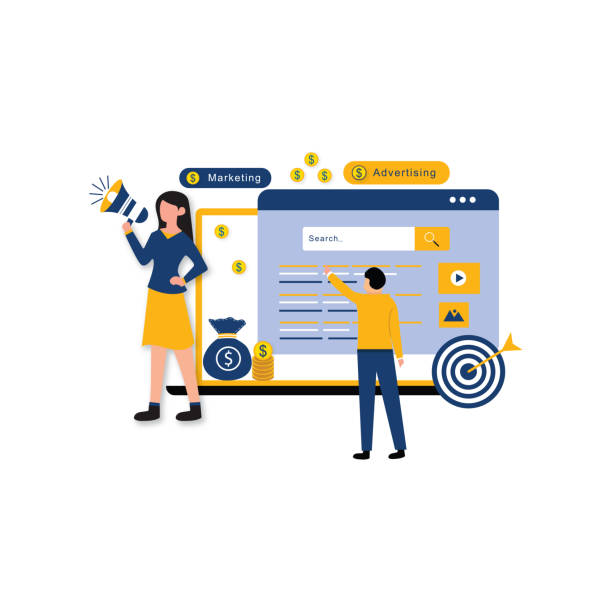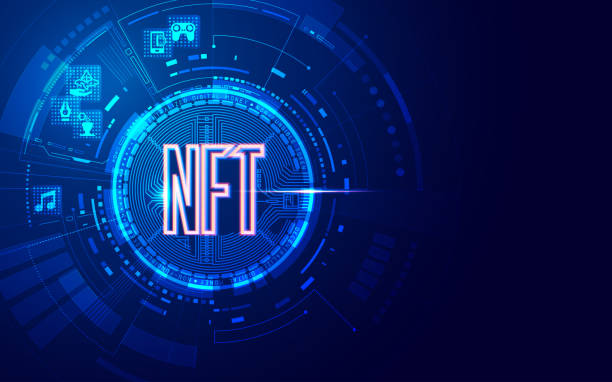مقدمهای بر سئو خارجی و اهمیت آن در رتبهبندی
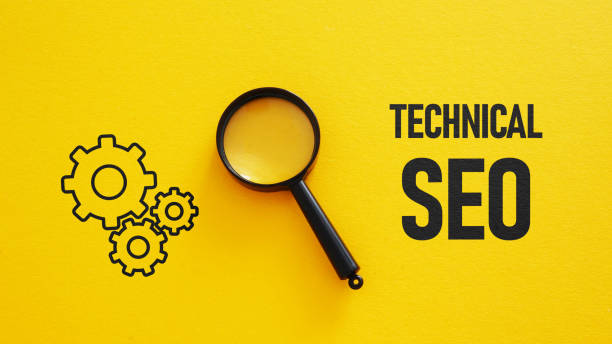
در دنیای پیچیده و رقابتی امروز اینترنت، #سئو_خارجی (Off-Page SEO) یکی از #مهمترین_ستونها برای موفقیت هر وبسایتی است.
این بخش از بهینهسازی موتورهای جستجو به تمام فعالیتهایی گفته میشود که خارج از وبسایت شما انجام میشود اما به طور مستقیم بر #رتبه_آن در نتایج جستجو تأثیر میگذارد.
هدف اصلی سئو خارجی، افزایش اعتبار دامنه و اعتماد موتورهای جستجو به سایت شما است.
اگرچه بسیاری سئو خارجی را تنها به بکلینکسازی خلاصه میکنند، اما در واقع این حوزه شامل طیف وسیعی از فعالیتهاست؛ از اشتراکگذاری در شبکههای اجتماعی گرفته تا منشن شدن برند شما در وبسایتهای معتبر و فعالیت در فرومهای تخصصی.
اهمیت سئو خارجی در آنجاست که موتورهای جستجو مانند گوگل، وبسایتهایی را که توسط دیگران به آنها ارجاع داده شدهاند، معتبرتر و قابل اعتمادتر میدانند.
این ارجاعات، که اغلب به شکل بکلینک هستند، به گوگل نشان میدهند که محتوای شما ارزشمند و مرجع است.
بدون یک استراتژی قوی در سئو خارجی، حتی بهترین محتوای روی سایت شما نیز ممکن است دیده نشود.
تصور کنید یک کتابخانه عظیم دارید که پر از کتابهای عالی و منحصر به فرد است، اما هیچ کس از وجود آن خبر ندارد.
سئو خارجی به منزله تبلیغ و معرفی این کتابخانه به دیگران است.
بنابراین، درک عمیق از مبانی سئو خارجی و اجرای صحیح آن برای هر کسبوکاری که به دنبال دیده شدن آنلاین و افزایش ترافیک ارگانیک است، ضروری است.
این بخش از بهینهسازی نیازمند صبر، استمرار و پیگیری است و نتایج آن در بلندمدت قابل مشاهده خواهد بود.
در حقیقت، سئو خارجی فراتر از تکنیکهای فنی، به اعتمادسازی و اعتبارآفرینی در دنیای وب میپردازد.
این جنبه «اعتمادسازی» و «ارجاع توسط دیگران» است که سئو خارجی را از سایر جنبههای سئو متمایز میکند و آن را به یک عنصر حیاتی در استراتژی کلی سئو تبدیل میکند.
آیا سایت فعلی شما اعتبار برندتان را آنطور که باید نمایش میدهد؟ یا مشتریان بالقوه را فراری میدهد؟
رساوب، با سالها تجربه در طراحی سایتهای شرکتی حرفهای، راهحل جامع شماست.
✅ سایتی مدرن، زیبا و متناسب با هویت برند شما
✅ افزایش چشمگیر جذب سرنخ و مشتریان جدید
⚡ همین حالا برای دریافت مشاوره رایگان طراحی سایت شرکتی با رساوب تماس بگیرید!
بکلینکسازی ستون فقرات سئو خارجی و ارتقاء اعتبار
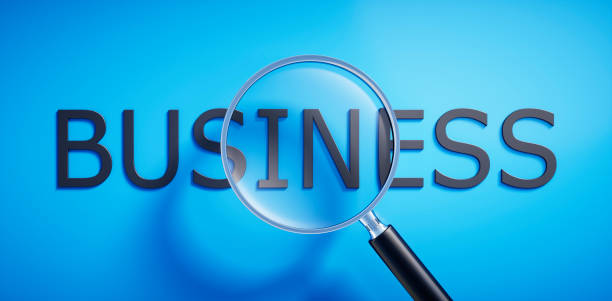
#بکلینکسازی به عنوان قلب تپنده #سئو_خارجی شناخته میشود.
این فرآیند، شامل دریافت لینک از سایر وبسایتها به سمت سایت شما است.
هر بکلینک به منزله یک رأی اعتماد از طرف یک وبسایت دیگر به محتوا و اعتبار سایت شما عمل میکند.
موتورهای جستجو این رأیها را به دقت بررسی میکنند و هر چه تعداد بکلینکهای باکیفیت بیشتری داشته باشید، وبسایت شما در نگاه آنها معتبرتر و قابل اعتمادتر جلوه خواهد کرد.
اما مهمتر از تعداد بکلینکها، کیفیت آنهاست.
یک بکلینک از یک سایت معتبر و مرتبط، ارزشی به مراتب بالاتر از صدها بکلینک از سایتهای کماعتبار یا اسپم دارد.
در واقع، لینکسازی بیرویه یا از سایتهای مشکوک نه تنها مفید نیست بلکه میتواند به رتبه سایت شما آسیب جدی وارد کند.
برای ساخت بکلینکهای باکیفیت، رویکردهای متفاوتی وجود دارد.
از جمله این رویکردها میتوان به تولید محتوای ارزشافزا که به طور طبیعی لینک جذب کند، مهماننویسی (Guest Posting) در وبلاگهای مرتبط، درخواست لینک از منابعی که به صورت غیرمستقیم به شما اشاره کردهاند، و استفاده از تکنیکهای پیشرفتهتر مانند بازسازی لینکهای شکسته (Broken Link Building) اشاره کرد.
سئو خارجی موفق، به معنای یک استراتژی پایدار برای کسب لینکهای طبیعی و مرتبط است که به صورت مداوم اعتبار سایت شما را افزایش دهند.
این فرآیند نیازمند شناسایی فرصتها، برقراری ارتباط با مدیران وبسایتهای دیگر و ایجاد محتوای جذاب است که دیگران را ترغیب به لینک دادن به شما کند.
تخصصی بودن در این زمینه به معنای درک کامل الگوریتمهای گوگل و معیارهایی است که برای ارزیابی بکلینکها استفاده میکند.
این شامل درک مفهوم “Domain Authority” (اعتبار دامنه) و “Page Authority” (اعتبار صفحه)، مرتبط بودن موضوعی (relevancy)، و جایگاه لینک در صفحه (contextual links) است.
این رویکرد تخصصی نه تنها به شما کمک میکند تا از تاکتیکهای اسپمگونه دوری کنید، بلکه به شما امکان میدهد تا منابع ارزشمندی را برای لینکسازی شناسایی کرده و ارتباطات موثری با آنها برقرار کنید.
بنابراین، بکلینکسازی نه تنها یک تکنیک بلکه یک هنر است که نیازمند دانش، مهارت و رویکردی استراتژیک برای تقویت جایگاه سایت شما در نتایج جستجو است.
یک استراتژی خوب در سئو خارجی همیشه بر کیفیت بر کمیت تمرکز دارد.
انواع بکلینک و روشهای کسب آنها برای سئو خارجی

در مسیر بهبود سئو خارجی، آشنایی با انواع بکلینک و روشهای کسب آنها امری حیاتی است.
بکلینکها به طور کلی به دو دسته اصلی Dofollow و Nofollow تقسیم میشوند.
لینکهای Dofollow آنهایی هستند که اعتبار و “Link Juice” را از سایت منبع به سایت مقصد منتقل میکنند و به طور مستقیم بر رتبه سئو تأثیر میگذارند.
در مقابل، لینکهای Nofollow معمولاً این اعتبار را منتقل نمیکنند، اما همچنان میتوانند ترافیک جذب کنند و به عنوان سیگنالی برای موتورهای جستجو عمل کنند که نشاندهنده فعالیت طبیعی و متنوع لینکسازی است.
داشتن ترکیبی از هر دو نوع لینک، به خصوص Dofollow، برای یک پروفایل لینک طبیعی و قوی ضروری است.
روشهای متنوعی برای کسب بکلینکهای باکیفیت وجود دارد که هر کدام نیازمند رویکرد و زمانبندی خاصی هستند:
- تولید محتوای ارزشافزا: تولید محتوای تخصصی، توضیحی یا راهنمایی که منبعی جامع و منحصر به فرد باشد، میتواند به طور طبیعی لینکهای زیادی را جذب کند.
این محتوا میتواند شامل اینفوگرافیکها، تحقیقات آماری، مقالات طولانی و دقیق یا ابزارهای رایگان باشد که دیگران را ترغیب به ارجاع به آن کند. - مهماننویسی (Guest Posting): این روش شامل نوشتن مقالات باکیفیت برای وبلاگها و سایتهای دیگر در حوزه مرتبط با کسبوکار شما است.
در ازای آن، شما یک یا چند لینک به سایت خود دریافت میکنید.
این روش نه تنها به لینکسازی کمک میکند بلکه به افزایش آگاهی از برند و جذب ترافیک ارجاعی نیز منجر میشود. - بازسازی لینکهای شکسته (Broken Link Building): یافتن لینکهای شکسته در وبسایتهای مرتبط و پیشنهاد جایگزینی آن با محتوای مشابه و سالم خودتان.
این یک استراتژی برد-برد است؛ زیرا به مدیر وبسایت کمک میکنید تا سایتش را بهبود بخشد و شما نیز یک بکلینک کسب میکنید. - همکاری با اینفلوئنسرها و بلاگرها: ارتباط با افراد تأثیرگذار در حوزه کاری شما که دارای مخاطبان زیادی هستند، میتواند منجر به دریافت لینک و منشن برند شما شود.
- استفاده از دایرکتوریها و فهرستهای آنلاین: ثبت نام در دایرکتوریهای معتبر و مرتبط با صنعت شما (مانند دایرکتوریهای محلی یا صنعتی) میتواند به افزایش اعتبار و دریافت لینک کمک کند.
برای درک بهتر انواع لینک و ارتباط آنها با سئو خارجی، جدول زیر را بررسی کنید:
| نوع لینک | توضیحات | تأثیر بر سئو خارجی |
|---|---|---|
| Dofollow | انتقال اعتبار (Link Juice) از سایت مبدأ به سایت مقصد. | بالا؛ مستقیماً بر رتبه و اعتبار سایت تأثیر میگذارد. |
| Nofollow | عدم انتقال مستقیم اعتبار؛ عمدتاً برای ترافیک و سیگنالهای طبیعی. | متوسط؛ به صورت غیرمستقیم و برای ایجاد تنوع در پروفایل لینک مفید است. |
| Sponsored | لینکهای پولی یا حمایتشده؛ باید با rel=”sponsored” مشخص شوند. | پایین؛ برای سئو مستقیم تأثیری ندارد و صرفاً برای شفافیت است. |
| UGC (User Generated Content) | لینکهای تولید شده توسط کاربران در فرومها، کامنتها و … | متوسط؛ معمولاً Nofollow هستند اما میتوانند ترافیک و آگاهی از برند ایجاد کنند. |
در هر یک از این روشها، تمرکز بر کیفیت و ارتباط موضوعی از اهمیت بالایی برخوردار است.
یک استراتژی جامع سئو خارجی، ترکیبی از این روشها را برای ایجاد یک پروفایل لینک متنوع و قوی به کار میگیرد.
معیارهای ارزیابی کیفیت بکلینک و دوری از لینکهای سمی در سئو خارجی
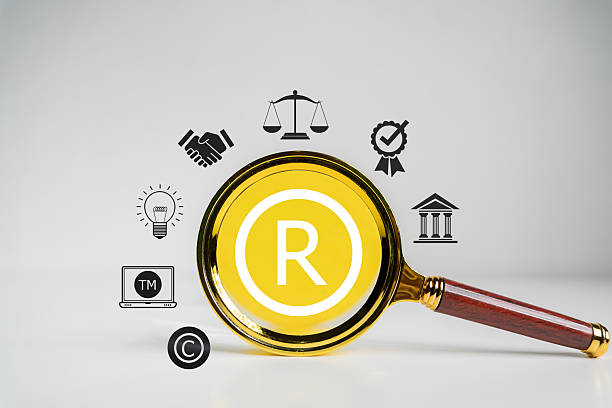
برای موفقیت در #سئو_خارجی، فقط کسب بکلینک کافی نیست؛ باید اطمینان حاصل کنید که بکلینکها از #منابع_با_کیفیت و معتبر میآیند.
لینکهای کمکیفیت یا سمی نه تنها کمکی به رتبه سایت شما نمیکنند، بلکه میتوانند منجر به پنالتی شدن سایت توسط الگوریتمهای گوگل شوند.
بنابراین، درک معیارهای ارزیابی کیفیت بکلینک و راههای دوری از لینکهای مضر، حیاتی است.
مهمترین معیارها برای ارزیابی کیفیت بکلینک عبارتند از:
- اعتبار دامنه و صفحه (Domain Authority و Page Authority): این معیارها، که توسط ابزارهایی مانند Moz ارائه میشوند، قدرت کلی یک وبسایت و یک صفحه خاص را بر اساس عوامل مختلفی مانند تعداد و کیفیت بکلینکها اندازهگیری میکنند.
دریافت لینک از سایتهایی با DA و PA بالا بسیار ارزشمند است. - مرتبط بودن موضوعی (Relevancy): لینکها باید از سایتهایی باشند که در حوزه موضوعی مشابه یا مرتبط با کسبوکار شما فعالیت میکنند.
به عنوان مثال، اگر سایت شما در مورد لوازم آرایشی است، لینکی از یک وبلاگ مد و زیبایی بسیار با ارزشتر از لینکی از یک سایت مکانیکی خودرو است. - موقعیت و جایگاه لینک در صفحه (Contextual Placement): لینکهایی که در متن اصلی محتوا (درون پاراگرافها) قرار میگیرند و به صورت طبیعی به موضوع مرتبط هستند، از ارزش بالاتری برخوردارند تا لینکهایی که در پاورقی، سایدبار یا در لیستهای غیرمرتبط قرار گرفتهاند.
- متن لنگر (Anchor Text): متن لنگر کلمهای است که لینک روی آن قرار میگیرد.
استفاده طبیعی و متنوع از متن لنگر (شامل نام برند، URL، کلمات کلیدی و عبارات عمومی) مهم است.
استفاده بیش از حد از یک کلمه کلیدی خاص در متن لنگر میتواند به عنوان لینکسازی اسپم تلقی شود. - ترافیک و تعامل سایت مبدأ: لینکی که از یک سایت پربازدید و فعال میآید که کاربران زیادی با محتوای آن تعامل دارند، ارزشمندتر است.
این نشان میدهد که سایت مبدأ خود یک منبع معتبر و مفید است.
برای دوری از لینکهای سمی یا اسپم، باید از موارد زیر پرهیز کرد:
- خرید لینک: به هیچ وجه نباید لینک خریداری کنید، به خصوص از مزارع لینک (link farms) یا شبکههای خصوصی وبلاگ (PBNs) که برای دستکاری نتایج جستجو طراحی شدهاند.
- لینک از سایتهای نامربوط یا اسپم: اگر سایتی که به شما لینک داده، کیفیت پایینی دارد، پر از تبلیغات است، یا در حوزههای نامربوط فعالیت میکند، باید به آن مشکوک شوید.
- افزایش ناگهانی و غیرطبیعی تعداد لینکها: رشد ناگهانی و غیرطبیعی پروفایل بکلینک میتواند سیگنالی منفی برای گوگل باشد.
در صورت مواجهه با لینکهای سمی، باید از ابزارهایی مانند Google Search Console برای شناسایی آنها و استفاده از ابزار Disavow برای اعلام عدم ارتباط با آن لینکها به گوگل استفاده کرد.
یک استراتژی سئو خارجی موفق، بر کیفیت و طبیعی بودن لینکها تأکید دارد، نه فقط بر تعداد آنها.
آیا میدانید وبسایت شرکت شما اولین نقطه تماس ۷۵٪ مشتریان بالقوه است؟
وبسایت شما چهره برند شماست. با خدمات طراحی سایت شرکتی **رساوب**، حضوری آنلاین بسازید که اعتماد مشتریان را جلب کند.
✅ ایجاد تصویری حرفهای و ماندگار از برند شما
✅ جذب مشتریان هدف و افزایش اعتبار آنلاین
⚡ دریافت مشاوره رایگان از کارشناسان **رساوب**!
نقش شبکههای اجتماعی در تقویت سئو خارجی و برندسازی
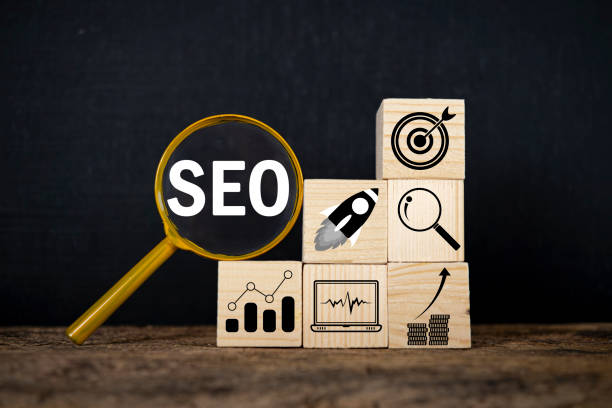
با وجود اینکه #لینکهای_شبکههای_اجتماعی مستقیماً به عنوان بکلینکهای Dofollow برای #سئو_خارجی محسوب نمیشوند، اما نقش آنها در تقویت اعتبار آنلاین و برندسازی سایت شما انکارناپذیر است.
فعالیت قوی و هدفمند در پلتفرمهای اجتماعی، به صورت غیرمستقیم به بهبود رتبه سئو کمک میکند.
چگونه؟
اولاً، افزایش آگاهی از برند و ترافیک: هر چه محتوای شما بیشتر در شبکههای اجتماعی به اشتراک گذاشته شود، افراد بیشتری از وجود سایت و محتوای شما مطلع میشوند.
این افزایش دید، میتواند منجر به افزایش ترافیک مستقیم به سایت شما شود.
ترافیک مستقیم و تکرار بازدیدها، سیگنالهای مثبتی برای گوگل هستند که نشاندهده محبوبیت و ارزش محتوای شماست.
این امر به صورت غیرمستقیم، به بهبود سئو خارجی کمک میکند.
ثانیاً، جذب بکلینکهای طبیعی: محتوای جذاب و کاربردی که در شبکههای اجتماعی به اشتراک گذاشته میشود، شانس بیشتری برای دیده شدن توسط وبمسترها، بلاگرها و روزنامهنگاران دارد.
اگر آنها محتوای شما را ارزشمند تشخیص دهند، ممکن است به آن لینک دهند.
این لینکها، که به صورت طبیعی و ارگانیک به دست میآیند، از بالاترین کیفیت برخوردار هستند و تأثیر مثبتی بر سئو خارجی شما دارند.
ثالثاً، تقویت سیگنالهای اجتماعی و تعامل: فعالیت مستمر در شبکههای اجتماعی، شامل پاسخ به نظرات، ایجاد بحث و گفتگو و اشتراکگذاری محتوای تعاملی، به گوگل نشان میدهد که برند شما فعال و زنده است.
گوگل به سیگنالهای اجتماعی (مانند لایک، کامنت، اشتراکگذاری) به عنوان شاخصی از محبوبیت و اعتبار یک برند نگاه میکند.
اگرچه این سیگنالها مستقیماً الگوریتم رتبهبندی را تحت تأثیر قرار نمیدهند، اما میتوانند به صورت غیرمستقیم بر کشف و ایندکس محتوا تأثیر بگذارند.
برای استفاده بهینه از شبکههای اجتماعی در استراتژی سئو خارجی، نکات زیر را در نظر بگیرید:
- محتوای مناسب هر پلتفرم را تولید کنید.
- به طور منظم محتوای جدید سایت را در شبکههای اجتماعی به اشتراک بگذارید.
- با مخاطبان خود تعامل داشته باشید و به نظرات آنها پاسخ دهید.
- از هشتگهای مرتبط و پرطرفدار استفاده کنید.
- پروفایلهای کسبوکار خود را در پلتفرمهای اصلی به صورت کامل و بهینه تکمیل کنید.
به طور خلاصه، شبکههای اجتماعی ابزاری قدرتمند برای افزایش دید، جذب ترافیک، و تشویق به لینکسازی طبیعی هستند که در نهایت به تقویت استراتژی سئو خارجی و بهبود جایگاه سایت شما در نتایج جستجو کمک میکنند.
این یک رویکرد تحلیلی و توضیحی برای درک نقش شبکههای اجتماعی در کنار سایر فعالیتهای سئو خارجی است.
تکنیکهای پیشرفته در سئو خارجی فراتر از بکلینک

در حالی که بکلینکسازی پایه و اساس #سئو_خارجی است، اما این حوزه شامل تکنیکهای پیشرفتهای فراتر از صرفاً دریافت لینک نیز میشود که میتوانند به طور قابل توجهی بر رتبه و اعتبار سایت شما تأثیر بگذارند.
این تکنیکها، اغلب کمتر شناختهشده و کمتر مورد استفاده قرار میگیرند، اما پتانسیل بالایی برای تمایز سایت شما از رقبا دارند.
یکی از این تکنیکها، “منشنهای برند” (Brand Mentions) بدون لینک است.
وقتی نام برند یا شرکت شما در وبسایتهای دیگر، مقالات خبری، یا حتی پلتفرمهای شبکههای اجتماعی ذکر میشود، حتی اگر لینک مستقیمی به سایت شما نباشد، این به عنوان یک سیگنال مثبت برای گوگل تلقی میشود.
گوگل به دنبال درک محبوبیت و اعتبار یک برند است و منشنهای برند نشاندهنده همین موضوع هستند.
برای پیگیری این منشنها، میتوانید از ابزارهای مانیتورینگ برند استفاده کنید.
سپس، در صورت امکان و مرتبط بودن، میتوانید با مدیر سایت تماس گرفته و درخواست کنید که منشن برند شما به یک لینک فعال تبدیل شود.
تکنیک دیگر، “لینکسازی با محتوای تعاملی و دادهمحور” است.
به جای تولید محتوای متنی صرف، روی ایجاد اینفوگرافیکهای حرفهای، نقشههای تعاملی، ابزارهای آنلاین رایگان، یا مطالعات تحقیقاتی جامع تمرکز کنید.
این نوع محتواها، به دلیل ارزش بالای خود و ارائه اطلاعات به شیوهای جذاب، به صورت طبیعی تمایل بیشتری به دریافت لینک از سایر وبسایتها دارند.
این رویکرد، نه تنها به شما در کسب بکلینک کمک میکند، بلکه شما را به عنوان یک مرجع در صنعت خود معرفی میکند.
“سئو محلی خارج از سایت” (Off-Site Local SEO) نیز یک جنبه مهم است، به ویژه برای کسبوکارهای فیزیکی.
این شامل بهینهسازی پروفایلهای کسبوکار شما در دایرکتوریهای محلی مانند Google My Business، Yelp، و سایر دایرکتوریهای مرتبط با صنعت شماست.
اطمینان از صحت و یکپارچگی اطلاعات NAP (Name, Address, Phone Number) در تمام این پلتفرمها حیاتی است.
این فعالیتها به گوگل کمک میکنند تا محل و خدمات کسبوکار شما را بهتر درک کند و در نتایج جستجوی محلی رتبه بالاتری به شما اختصاص دهد، که در نهایت به تقویت سئو خارجی شما کمک میکند.
همچنین، شرکت در “بحثهای آنلاین و فرومهای تخصصی” میتواند بسیار مؤثر باشد.
پاسخ دادن به سؤالات، ارائه راهنمایی و مشاوره تخصصی در فرومهای مرتبط با صنعت شما، نه تنها شما را به عنوان یک متخصص معرفی میکند، بلکه میتواند ترافیک ارجاعی به سایت شما ایجاد کند و در برخی موارد، حتی به دریافت بکلینکهای طبیعی و Dofollow منجر شود.
این روشها نشان میدهند که سئو خارجی یک حوزه پویا و در حال تکامل است که فراتر از صرفاً تعداد لینکها میرود و نیازمند رویکردی جامع و تحلیلی است.
ابزارهای حیاتی برای تحلیل و مدیریت سئو خارجی

برای اینکه استراتژی #سئو_خارجی شما مؤثر و کارآمد باشد، استفاده از ابزارهای مناسب برای تحلیل، پیگیری و مدیریت بکلینکها و سایر فعالیتهای آفپیج ضروری است.
این ابزارها به شما امکان میدهند تا پروفایل لینک خود و رقبا را بررسی کنید، فرصتهای جدید برای لینکسازی را شناسایی کنید و از لینکهای سمی دوری کنید.
در ادامه به معرفی برخی از حیاتیترین این ابزارها میپردازیم:
- Google Search Console (GSC): این ابزار رایگان و بسیار قدرتمند از گوگل، اولین نقطهی شروع برای هر متخصص سئو است.
GSC به شما اجازه میدهد تا تمام لینکهای ورودی به سایت خود را مشاهده کنید، لینکهای سمی را شناسایی کنید و حتی درخواست disavow (عدم ارتباط با لینک) ارسال کنید.
همچنین اطلاعات ارزشمندی در مورد خطاهای خزش، ایندکس شدن صفحات و عملکرد سایت در نتایج جستجو ارائه میدهد. - Ahrefs: یکی از جامعترین و پرکاربردترین ابزارهای سئو در بازار.
Ahrefs یک پایگاه داده عظیم از بکلینکها دارد و به شما امکان میدهد تا پروفایل لینک هر وبسایتی (شامل سایت خودتان و رقبا) را به دقت بررسی کنید.
این ابزار برای کشف فرصتهای لینکسازی جدید، تحلیل شکاف محتوایی، و بررسی لینکهای شکسته بسیار مفید است. - Semrush: این ابزار نیز مانند Ahrefs، قابلیتهای گستردهای در زمینه سئو، از جمله تحلیل بکلینک، دارد.
Semrush نه تنها به شما کمک میکند تا بکلینکهای خود را رصد کنید، بلکه ابزارهایی برای تحلیل رقبا، تحقیق کلمات کلیدی، و مانیتورینگ رتبه نیز ارائه میدهد.
قابلیت “Link Building Tool” آن نیز برای شناسایی فرصتهای لینکسازی کاربردی است. - Moz Pro: Moz Pro ابزارهای متنوعی برای سئو ارائه میدهد، از جمله ابزار Link Explorer که برای تحلیل بکلینکها و محاسبه معیارهای Domain Authority (DA) و Page Authority (PA) شناخته شده است.
این ابزار به شما کمک میکند تا کیفیت و اعتبار لینکهای ورودی را ارزیابی کنید. - Majestic: این ابزار به طور خاص بر روی تحلیل لینکها تمرکز دارد و دو معیار اصلی “Trust Flow” و “Citation Flow” را برای ارزیابی کیفیت و کمیت لینکها ارائه میدهد.
Majestic یک دیدگاه منحصر به فرد از پروفایل لینک شما و رقبا ارائه میدهد.
| ابزار | قابلیتهای اصلی در سئو خارجی | مزایا |
|---|---|---|
| Google Search Console | مشاهده بکلینکها، ارسال Disavow، گزارش خطاهای سایت | رایگان، دادههای دقیق از گوگل، ضروری برای سلامت سایت |
| Ahrefs | تحلیل عمیق بکلینک، تحقیق رقبا، تحقیق کلمات کلیدی | جامعترین پایگاه داده بکلینک، رابط کاربری قوی |
| Semrush | تحلیل بکلینک، تحقیق کلمات کلیدی، ابزار لینکسازی، گزارشهای جامع | قابلیتهای همه کاره، مناسب برای کمپینهای سئو جامع |
| Moz Pro | تحلیل بکلینک، DA و PA، ردیابی رتبه | معیارهای معتبر (DA/PA)، رابط کاربری ساده |
استفاده ترکیبی از این ابزارها، به شما یک دید جامع و تخصصی برای مدیریت و بهینهسازی استراتژی سئو خارجی خود میدهد.
این امر به شما کمک میکند تا تصمیمات دادهمحور بگیرید و از منابع خود به بهترین نحو استفاده کنید.
محتوای سوالبرانگیز و نقش آن در جذب بکلینک و سئو خارجی
![]()
یکی از رویکردهای جذاب و گاهی بحثبرانگیز در استراتژی #سئو_خارجی، تولید #محتوای_سوالبرانگیز (Controversial Content) یا سرگرمکننده است که به طور بالقوه میتواند تعداد زیادی بکلینک و اشتراکگذاری اجتماعی را جذب کند.
این نوع محتوا، با ایجاد شور و هیجان، کنجکاوی و گاهی اوقات مخالفت، باعث میشود که مردم درباره آن صحبت کنند، آن را به اشتراک بگذارند و به آن لینک دهند.
اما استفاده از این تکنیک نیازمند دقت و برنامهریزی است تا به جای جذب اعتبار، به شهرت برند شما آسیب نرساند.
محتوای سوالبرانگیز معمولاً به موضوعاتی میپردازد که نظرات متفاوتی در مورد آنها وجود دارد، یا باورهای رایج را به چالش میکشد.
هدف اصلی آن، تحریک بحث و گفتگو و وایرال شدن است.
به عنوان مثال، یک مقاله که دیدگاههای رایج در صنعت شما را به چالش میکشد، یا یک مطالعه موردی که نتایج غیرمنتظرهای را نشان میدهد، میتواند به این دسته تعلق گیرد.
وقتی چنین محتوایی منتشر میشود، افراد و وبسایتهای زیادی تمایل پیدا میکنند که به آن ارجاع دهند، چه برای تأیید و چه برای رد دیدگاههای مطرح شده.
این ارجاعات، همان بکلینکهای طبیعی هستند که به تقویت سئو خارجی شما کمک میکنند.
اما استفاده از محتوای سوالبرانگیز با ریسکهایی نیز همراه است.
اگر محتوا به درستی مدیریت نشود یا بیش از حد تحریککننده باشد، میتواند به برند شما آسیب برساند.
بنابراین، مهم است که:
- موضوعی را انتخاب کنید که واقعاً به صنعت شما مرتبط باشد.
- دیدگاه خود را با تحلیلهای قوی و دادهها پشتیبانی کنید، حتی اگر بحثبرانگیز باشد.
- برای واکنشهای منفی احتمالی آماده باشید و برنامهای برای مدیریت آنها داشته باشید.
- هدف اصلی شما باید ارائه ارزش و آگاهی باشد، نه صرفاً جلب توجه.
علاوه بر محتوای سوالبرانگیز، محتوای سرگرمکننده نیز میتواند ابزاری قدرتمند برای جذب لینک باشد.
این میتواند شامل میمها، ویدیوهای طنز، چالشها، یا حتی آزمونهای تعاملی باشد که با برند شما مرتبط هستند.
محتوای سرگرمکننده به طور طبیعی به اشتراک گذاشته میشود و پتانسیل وایرال شدن بالایی دارد، که این خود به خود منجر به دریافت لینک و افزایش دید برند میشود.
این نوع محتوا، جنبهای متفاوت از سئو خارجی را نشان میدهد که بر خلاقیت و درک روانشناسی مخاطب تکیه دارد.
در نهایت، موفقیت در استفاده از این رویکردها برای سئو خارجی به توانایی شما در تولید محتوایی بستگی دارد که هم جذاب باشد و هم ارزش واقعی ارائه دهد، بدون اینکه به اعتبار بلندمدت برند شما آسیب برساند.
این یک راهنمایی برای استفاده خلاقانه از محتوا در جهت اهداف سئو است.
از دست دادن سرنخهای تجاری به دلیل سایت غیرحرفهای چقدر برایتان هزینه دارد؟ با طراحی سایت شرکتی حرفهای توسط رساوب، این مشکل را برای همیشه حل کنید!
✅ افزایش اعتبار و اعتماد مشتریان بالقوه
✅ جذب آسانتر سرنخهای تجاری جدید
⚡ همین حالا مشاوره رایگان بگیرید!
استراتژیهای طولانی مدت و نگهداری سئو خارجی در دنیای متغیر

موفقیت در #سئو_خارجی یک رویداد یکباره نیست، بلکه یک فرآیند #مداوم و نیازمند #استراتژی_بلند_مدت است.
دنیای سئو به طور مداوم در حال تغییر است، الگوریتمهای گوگل به روز میشوند و رقابت هر روز فشردهتر میشود.
بنابراین، نگهداری و بروزرسانی مداوم فعالیتهای سئو خارجی حیاتی است.
اولین و مهمترین جنبه در این استراتژی، نظارت مستمر بر پروفایل بکلینک شما است.
شما باید به طور منظم لینکهای جدیدی که به سایت شما اشاره میکنند را بررسی کنید، کیفیت آنها را ارزیابی کنید و در صورت مشاهده لینکهای سمی یا اسپم، اقدامات لازم برای disavow کردن آنها را انجام دهید.
این کار از آسیب دیدن رتبه سایت شما جلوگیری میکند و به گوگل نشان میدهد که شما کنترل کاملی بر روی لینکهای ورودی خود دارید.
دومین نکته، بازنگری و بهبود مداوم استراتژی لینکسازی است.
با توجه به تغییرات الگوریتمها و روندهای جدید در صنعت، ممکن است نیاز باشد تاکتیکهای لینکسازی خود را تغییر دهید.
به عنوان مثال، اگر گوگل به سمت محتوای عمیق و تخصصیتر سوق پیدا میکند، تمرکز شما باید بر تولید چنین محتوایی برای جذب لینکهای طبیعی باشد.
بررسی منظم رقبا نیز به شما دیدگاههای جدیدی برای شناسایی فرصتهای لینکسازی میدهد.
این یک رویکرد خبری و تحلیلی است که به شما کمک میکند تا همیشه یک قدم جلوتر باشید.
سومین جنبه، تنوع بخشیدن به منابع لینک است.
وابستگی بیش از حد به یک نوع لینک یا یک منبع خاص میتواند خطرناک باشد.
سعی کنید لینکهای خود را از وبلاگها، سایتهای خبری، دایرکتوریها، فرومها، و پلتفرمهای شبکههای اجتماعی مختلفی کسب کنید.
این تنوع، پروفایل لینک شما را طبیعیتر و مقاومتر در برابر تغییرات الگوریتمی میکند.
چهارمین نکته، بروزرسانی و ارتقاء محتوای موجود است.
محتوایی که قبلاً منتشر کردهاید و لینکهای خوبی جذب کرده است، باید به طور منظم بررسی و بروزرسانی شود تا اطمینان حاصل شود که همچنان مرتبط و ارزشمند باقی میماند.
افزودن اطلاعات جدید، آمار بروز، یا بهبود کیفیت محتوا میتواند به حفظ و حتی جذب لینکهای جدید کمک کند.
این یک راهنمایی کلیدی برای حفظ ارزش محتوا در طول زمان است.
در نهایت، صبر و استمرار مهمترین عوامل در سئو خارجی بلندمدت هستند.
نتایج سئو خارجی به سرعت قابل مشاهده نیستند و ممکن است ماهها طول بکشد تا تأثیر تلاشهای شما را ببینید.
حفظ یک استراتژی پایدار، پیگیرانه و متمرکز بر کیفیت، کلید موفقیت پایدار در این حوزه است.
سئو خارجی یک مسابقه سرعت نیست، بلکه یک ماراتن است.
جمعبندی و آینده سئو خارجی در اکوسیستم دیجیتال

در پایان این مقاله جامع درباره #سئو_خارجی، میتوانیم بگوییم که این جنبه از بهینهسازی موتورهای جستجو نه تنها یک بخش حیاتی از استراتژی سئو است، بلکه قلب تپنده اعتبار و اقتدار آنلاین هر وبسایتی به شمار میرود.
همانطور که بررسی کردیم، سئو خارجی فراتر از صرف بکلینکسازی است و شامل طیف وسیعی از فعالیتها از جمله منشنهای برند، سیگنالهای اجتماعی و حضور فعال در جوامع آنلاین میشود.
هدف نهایی تمامی این فعالیتها، ایجاد یک حضور آنلاین معتبر و قابل اعتماد است که موتورهای جستجو آن را تشخیص دهند و به آن پاداش دهند.
آینده سئو خارجی نیز همانند گذشته، به شدت به کیفیت و ارتباط وابسته خواهد بود.
با هوشمندتر شدن الگوریتمهای گوگل، توانایی آنها در شناسایی لینکهای طبیعی از لینکهای دستکاری شده بیشتر میشود.
بنابراین، تمرکز بر تولید محتوای ارزشافزا، تخصصی، و منحصر به فرد که به طور طبیعی لینک جذب کند، بیش از پیش اهمیت پیدا میکند.
اهمیت سیگنالهای برند و قدرت نام تجاری نیز رو به افزایش است؛ هرچه برند شما شناختهشدهتر و مورد اعتمادتر باشد، شانس بیشتری برای کسب لینکهای طبیعی و منشنهای مثبت خواهید داشت.
این یک دیدگاه تحلیلی برای آینده است.
علاوه بر این، تجربه کاربری (UX) و Intent Matching (تطبیق نیت کاربر) در حال تبدیل شدن به فاکتورهای غیرمستقیم اما قدرتمند در سئو خارجی هستند.
وقتی محتوای شما به درستی به نیازهای کاربران پاسخ میدهد و تجربه کاربری خوبی را ارائه میدهد، احتمال اینکه کاربران محتوای شما را به اشتراک بگذارند، به آن لینک دهند و در مورد آن صحبت کنند، به طور چشمگیری افزایش مییابد.
این تعاملات مثبت، به نوبه خود، به عنوان سیگنالهای مثبت برای موتورهای جستجو عمل میکنند و به سئو خارجی شما کمک میکنند.
در نهایت، سئو خارجی یک سفر بیوقفه است که نیازمند صبر، نوآوری و تعهد به ارائه ارزش واقعی است.
با پیگیری مداوم استراتژیهای باکیفیت و استفاده هوشمندانه از ابزارهای موجود، میتوانید جایگاه سایت خود را در نتایج جستجو بهبود بخشید و حضوری قدرتمند در دنیای دیجیتال داشته باشید.
این یک توضیحی برای خلاصه کل مقاله و چشمانداز آینده است.
سوالات متداول
| سوال (Question) | پاسخ (Answer) |
|---|---|
| سئو خارجی (Off-Page SEO) چیست؟ | سئو خارجی به مجموعهای از فعالیتها و روشهایی گفته میشود که خارج از وبسایت شما انجام میشوند تا رتبه آن در موتورهای جستجو بهبود یابد، مانند ساخت بکلینک. |
| چرا سئو خارجی برای وبسایت مهم است؟ | سئو خارجی به موتورهای جستجو نشان میدهد که وبسایت شما معتبر، محبوب و قابل اعتماد است، که به افزایش اعتبار دامنه و رتبهبندی کمک میکند. |
| مهمترین فاکتور در سئو خارجی کدام است؟ | بکلینکها (Backlinks) یا لینکهایی که از سایتهای دیگر به سایت شما داده میشوند، مهمترین فاکتور هستند، به خصوص اگر از سایتهای معتبر باشند. |
| بکلینک با کیفیت چه ویژگیهایی دارد؟ | بکلینک با کیفیت از سایتهای معتبر (با اتوریتی بالا)، مرتبط با موضوع سایت شما، و با انکر تکست مناسب (طبیعی) میآید. |
| آیا شبکههای اجتماعی در سئو خارجی نقش دارند؟ | بله، اشتراکگذاری محتوا در شبکههای اجتماعی میتواند به افزایش دید و ترافیک غیرمستقیم کمک کند و سیگنالهای اجتماعی مثبتی به موتورهای جستجو بفرستد. |
| PBN چیست و آیا توصیه میشود؟ | PBN (Private Blog Network) شبکهای از وبسایتهای خصوصی است که برای ساخت بکلینک به سایت اصلی استفاده میشود. گوگل این روش را اسپم میداند و استفاده از آن به شدت منع شده و میتواند منجر به جریمه شود. |
| لینک سازی طبیعی (Natural Link Building) چگونه انجام میشود؟ | با تولید محتوای ارزشمند و قابل اشتراکگذاری، برقراری ارتباط با وبلاگنویسان و اینفلوئنسرها، و جلب توجه رسانهها. |
| انکر تکست (Anchor Text) در بکلینک چیست؟ | متنی است که لینک در آن قرار داده شده است. استفاده از انکر تکستهای متنوع و مرتبط با کلمه کلیدی، طبیعیتر به نظر میرسد و به سئو کمک میکند. |
| سئو محلی (Local SEO) چه ارتباطی با سئو خارجی دارد؟ | سئو محلی شامل فعالیتهای خارج از سایت مانند ثبت در Google My Business، دایرکتوریهای محلی و دریافت نظرات آنلاین است که به کسبوکارها کمک میکند تا در نتایج جستجوی محلی ظاهر شوند. |
| چگونه میتوان بکلینکهای رقیب را بررسی کرد؟ | با استفاده از ابزارهایی مانند Ahrefs، Semrush یا Moz میتوانید پروفایل بکلینکهای رقبا را تحلیل کنید و فرصتهای لینکسازی جدید را شناسایی نمایید. |
و دیگر خدمات آژانس تبلیغاتی رسا وب در زمینه تبلیغات
اتوماسیون بازاریابی هوشمند: ابزاری مؤثر جهت بهبود رتبه سئو به کمک مدیریت تبلیغات گوگل.
بهینهسازی نرخ تبدیل هوشمند: خدمتی اختصاصی برای رشد جذب مشتری بر پایه سفارشیسازی تجربه کاربر.
سئو هوشمند: خدمتی نوین برای افزایش رشد آنلاین از طریق بهینهسازی صفحات کلیدی.
رپورتاژ هوشمند: خدمتی نوین برای افزایش جذب مشتری از طریق برنامهنویسی اختصاصی.
سوشال مدیا هوشمند: ابزاری مؤثر جهت افزایش فروش به کمک استفاده از دادههای واقعی.
و بیش از صد ها خدمات دیگر در حوزه تبلیغات اینترنتی ،مشاوره تبلیغاتی و راهکارهای سازمانی
تبلیغات اینترنتی | استراتژی تبلیعاتی | ریپورتاژ آگهی
منابع
- استراتژی سئو خارجی چیست؟ | 8 استراتژی سئو خارجی مؤثر
- سئو خارجی چیست و چگونه انجام می شود؟
- سئو خارجی چیست و چگونه آن را بهبود ببخشیم؟ (2024)
- استراتژی سئو خارجی: گام به گام تا رتبه بندی برتر!
? آمادهاید کسبوکار خود را در دنیای دیجیتال متحول کنید؟ آژانس دیجیتال مارکتینگ رساوب آفرین با تخصص خود در طراحی وبسایت حرفه ای و سئو، راهکارهای نوآورانه برای رشد و دیده شدن شما ارائه میدهد.
📍 تهران ، خیابان میرداماد ،جنب بانک مرکزی ، کوچه کازرون جنوبی ، کوچه رامین پلاک 6

